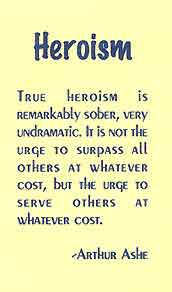© 2019 Steve Campsall
| BINARY | OPPOSITION |
 |
This will become easier to grasp if we go back to a word we met early on, the word coward. As was said earlier, if you consider and reflect upon the meanings, associations and attitudes to this word, you will recognise that these are created by our sense of the word that is actually its 'cultural opposite', the word hero. Each of these two words are, in essence and in deeply ingrained and important cultural ways, reliant for their meaning on the existence of their opposite: their binary opposite.
What should become clear is that within our culture, we each subconsciously apply a system of binary opposites to shape our interpretations of many words and ideas. These oppositions seem entirely natural and too obvious to question; but they are anything but: such 'opposites' exist simply because our culture deems it to be so. Here are some common 'binary pairs':
|
||
 |